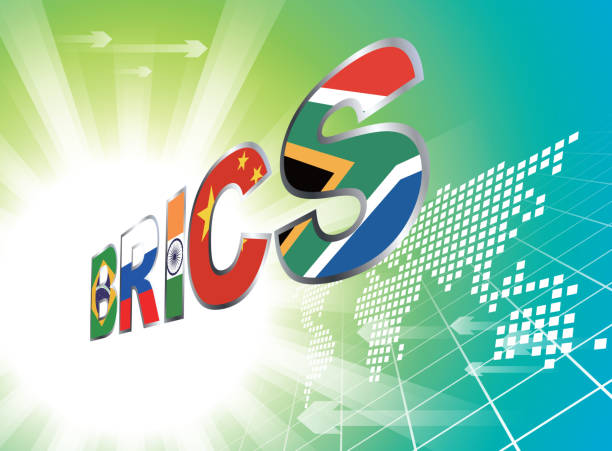In a move with potentially significant geopolitical implications, five Arab countries – Egypt, Ethiopia, Iran, Saudi Arabia, and the United Arab Emirates (UAE) – are poised to join the BRICS alliance, a grouping of major emerging economies. This expansion, set to be formally implemented on January 1st, 2024, marks a turning point for the group and presents opportunities and challenges for both existing and new members.
Understanding BRICS:
BRICS, an acronym for Brazil, Russia, India, China, and South Africa, was established in 2006 as a platform for emerging economies to collaborate on issues of mutual interest. With a combined GDP exceeding $23 trillion and representing 42% of the global population, the group seeks to challenge the established economic order dominated by Western powers. BRICS has focused on areas like sustainable development, financial cooperation, and infrastructure investment, aiming to increase its members’ influence on the world stage.
Arab Aspirations and Potential Benefits:
The Arab world’s interest in joining BRICS stems from a desire for greater representation and economic diversification. These nations see BRICS as a platform to:
- Boost economic development: Access to BRICS’ development banks and investment funds could provide vital resources for infrastructure projects, technological advancement, and job creation.
- Increase trade and investment: Membership could facilitate economic exchange within the bloc and provide access to new markets.
- Gain political influence: A larger BRICS with a stronger presence in the Middle East and Africa could carry greater weight in international negotiations on topics like trade, climate change, and security.
- Reduce dependence on Western powers: Diversifying economic and political partnerships could offer Arab nations greater autonomy and leverage.
Challenges and Uncertainties:
While the potential benefits of BRICS membership are apparent, several challenges and uncertainties lie ahead:
- Internal cohesion: Integrating five diverse nations with sometimes conflicting interests into BRICS’ existing framework will require careful diplomacy and strategic alignment.
- Geopolitical complexities: The inclusion of Saudi Arabia and Iran, countries with historical tensions, raises concerns about internal friction and the group’s ability to present a united front on international issues.
- Governance and transparency: BRICS has been criticized for its lack of transparency and democratic decision-making. New members will need to push for reforms to ensure a more inclusive and accountable framework.
- Western perspectives: The expansion of BRICS may be viewed with suspicion by some Western powers, potentially triggering new geopolitical rivalries.
Implications for the Global Landscape:
The expansion of BRICS has the potential to reshape the global economic and political landscape in several ways:
- A shift in power dynamics: BRICS’ increased clout could challenge the dominance of Western institutions like the G7 and IMF, leading to a more multipolar world order.
- Greater South-South cooperation: Stronger economic ties between emerging economies could lead to increased investments in developing countries and alternative financial systems.
- New avenues for global governance: BRICS could play a larger role in addressing global challenges like climate change, poverty, and inequality, promoting solutions tailored to the needs of developing nations.
Conclusion:
The Arab nations’ entry into BRICS is a significant development with far-reaching implications. While challenges and uncertainties remain, the potential for stronger economic cooperation, increased political influence, and a more balanced global order is undeniable. The success of this expansion depends on the ability of BRICS to overcome internal differences, embrace transparency, and forge a unified agenda that benefits all its members. The world will be watching closely as this evolving alliance navigates the complex landscape of the 21st century.
Additional Points to Consider:
- The article can be further extended by diving deeper into the specific interests and motivations of each Arab country joining BRICS.
- Analysing the potential impact of BRICS expansion on regional dynamics in the Middle East and Africa can add another layer of depth.
- Exploring potential scenarios for the future of BRICS, including success stories and potential pitfalls, can provide a forward-looking perspective.
By incorporating these aspects, you can create a comprehensive and informative article that delves into the complexities of this news event and its broader implications for the future of the global order.









